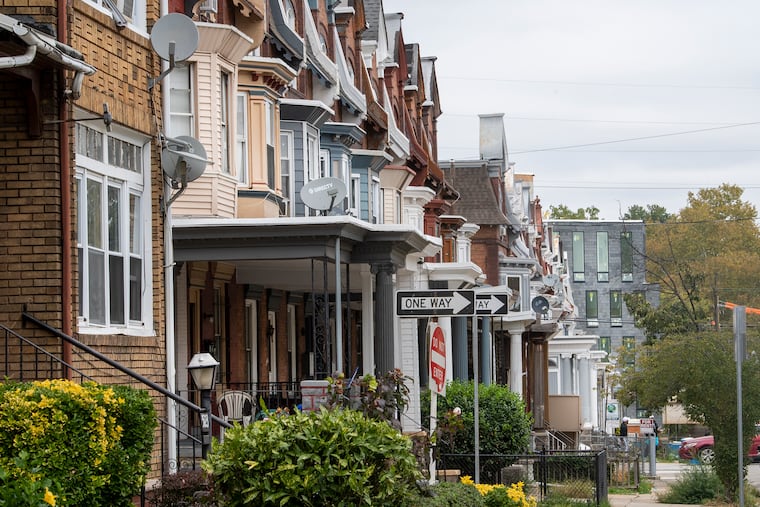What you need to know about Philly’s 31% property assessment spike
Philadelphia released its first property reassessments in three years. Many homeowners are seeing a significant increase.

On Monday, Philadelphia officials released the first property reassessments in three years — and many property owners are in for a surprise.
The reassessment of Philadelphia’s 580,000 properties is expected to generate $92 million in additional property revenue for the city, with the value of the average residential property up 31% from the last assessment. Lawmakers are still hammering out the details to offset the proposed rates.
Here’s everything you need to know about the new assessments.
How can I look up my new property assessment?
Use the city’s website here. The new assessments were posted Monday. Type in your property address and look for the “assessed value” number on the left side. The 2023 value is the new assessment. You can also see your property’s previous assessment values here for comparison.
What does that number mean?
Philadelphia’s new assessments represent the estimated value of your property, which the city uses to calculate your annual tax bill.
How can I figure out how much my tax bill is going to go up?
Math. The city used to have a real estate tax calculator, but it appears to have been deactivated. To get an estimate of your annual property tax bill, you can use a regular calculator to determine 1.3998% (the city’s current real estate tax rate) of your current assessed value.
The tax rate — and the value of tax-relief programs such as the homestead exemption for owner-occupied homes — could change before City Council finalizes a new budget in June. But to know what your bill would be if those stayed the same, multiply your assessed value by .013998. (If you have a tax abatement or homestead exemption, you’ll want to subtract the amount you see under “exempt improvement” in your property data from the assessed value before multiplying.)
When do I have to start paying the new taxes on my property?
Next year. The new assessments will apply to tax bills due March 31, 2023.
Is every homeowner seeing a significant increase in their property’s assessed value?
No. The new assessments will vary dramatically from neighborhood to neighborhood. Rapidly developing or gentrifying neighborhoods will see above-average increases, while other areas may see modest bumps.
Why hasn’t the city reassessed property values in three years?
A couple reasons. In 2019, the city’s Office of Property Assessment said it would delay property reassessments through 2021 to roll out a long-delayed computer upgrade, implement some reforms, and catch up on its long backlog of appeals. The pandemic also caused delays for the office’s operations.
» READ MORE: Philly delayed property assessments for three years. Now residential values are jumping 31%.
What is the city doing with the increased tax revenue?
It’s still being worked out. City Council is negotiating over Mayor Jim Kenney’s proposed $5.6 billion budget ahead of the June 30 deadline. Kenney has said the administration will use part of the new revenue generated by the assessment bump to pay for cuts in the wage tax, but some lawmakers want to see more immediate relief for homeowners.
Is there anything that can make me feel better about this?
Lawmakers are trying to offset the costs of the property tax increase. A combination of tax relief programs spread out over several years could mean property owners break even over five years. Kenney wants to increase the homestead-exemption tax break for owner-occupied homes from its current $45,000 to $65,000. He also wants to lower the wage tax for city residents from 3.8398% to 3.7% over two years, among other relief measures.
How can I lower my property tax bill?
Look for existing relief options. If your property is your primary residence, the homestead exemption is the best place to start. This tax break for owner-occupied properties reduces the taxable assessment by $45,000 — or about $629 a year. Note: December 1 is the deadline to apply for the upcoming tax year.
Not sure if you have the homestead exemption? Look up your property address on the city’s website. Look at the “exempt improvement” column for 2023. If you see $45,000 listed here, chances are you’re already enrolled in the exemption.
Will the proposed relief options save me money on my next tax bill?
They could save you hundreds of dollars. If Kenney succeeds in bumping the homestead exemption to $65,000, homeowners could save up to $900 on future tax bills — which could significantly offset the increases in your new assessment.
Kenney’s proposed reduction to the wage tax could help you indirectly via your weekly paychecks. At the current rate of 3.8398%, someone making $45,000 per year pays about $1,728 annually in city wage tax. If that rate is cut to 3.7%, that tax would drop to about $1,665, saving you about $63 a year.
Can I dispute my new assessment?
Yes. There are both informal and formal appeal processes. The Office of Property Assessment offer informal reviews of assessments, known as a “first level review.” A form to request that review, in which assessors will take a second look at your assigned value, will be included in a mailing from the city notifying property owners of their new assessments.
To file a formal appeal, go to this website and follow the steps to submit a review to the Board of Revision and Taxes before the first Monday in October. Do some homework first. You’ll have to explain why your property’s 2023 assessed value is unfair relative to comparable homes. Simply arguing “it went up too much” won’t get you very far.
Staff writer Sean Collins Walsh contributed reporting.